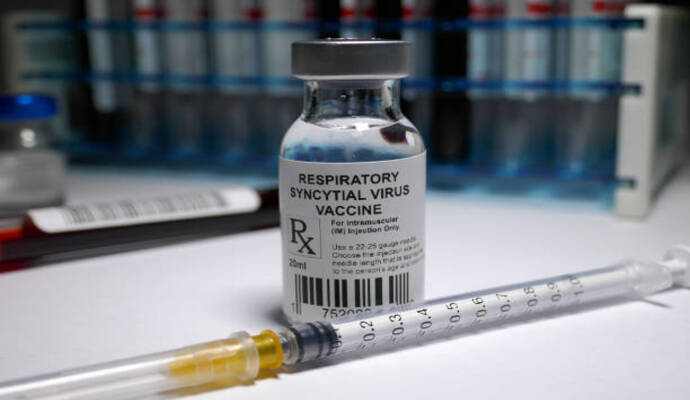Almost Half of Infants in the US Have Received the RSV Vaccine
A CDC report noted that 40.5% of infants under eight months have received nirsevimab, the RSV vaccine, while 21.7% of parents plan to get their infants vaccinated.

Source: Getty Images
- Last week, the CDC updated data on respiratory syncytial virus (RSV) vaccine uptake in the United States, revealing that almost half of infants in the US have been vaccinated. Additional data provided insights into vaccine coverage across other vulnerable communities, including elderly individuals and pregnant people.
According to the data, 40.5% of infants under eight months have received the RSV vaccine as of January 2024. Additionally, 21.7% of parents reported that they would get their infants vaccinated. Moreover, 38.2% of pregnant individuals in January 2024 noted that they intend to get their children vaccinated against the virus. Beyond that, 44.4% of individuals trying to conceive claimed they would vaccinate their infant when eligible.
Pregnant people are also eligible and recommended for RSV vaccination. An estimated 16.2% of pregnant people at a gestational age of 32 weeks or more were vaccinated against RSV. However, there were variations in vaccine coverage based on maternal race and ethnicity. For example, 22.8% of non-Hispanic Asian pregnant people had been vaccinated, while only 9.5% of non-Hispanic Black pregnant individuals had vaccine coverage.
Overall, the CDC reported 9.02 million doses of RSV vaccine administered to adults in the US, providing coverage to 22.4% of adults 60 years old or older.
Vaccination plays a vital role in public health and protecting broader communities.
At the end of 2022, rising rates of respiratory viruses, including influenza, COVID-19, and RSV, gave way to what many public health experts coined the tripledemic. RSV infection rates were a critical component of this compromising epidemic, which predominantly impacted pediatric, elderly, and immunocompromised patient populations.
The CDC estimated that RSV rates in the 2022–2023 season were significantly higher than in the preceding years. For example, RSV-related hospitalization rates were 53% greater. These rising rates pushed healthcare researchers and pharmaceutical companies to develop RSV vaccines that offered protection, marking the first FDA-approved RSV vaccines.
Nirsevimab-alip, sold under the brand name Beyfortus, was approved by the FDA in July 2023 for preventing RSV in babies and toddlers. Later, the indications were expanded to include other vulnerable populations.
Clinical research underscores the efficacy of RSV vaccines in preventing severe infection, hospitalization, and death.
